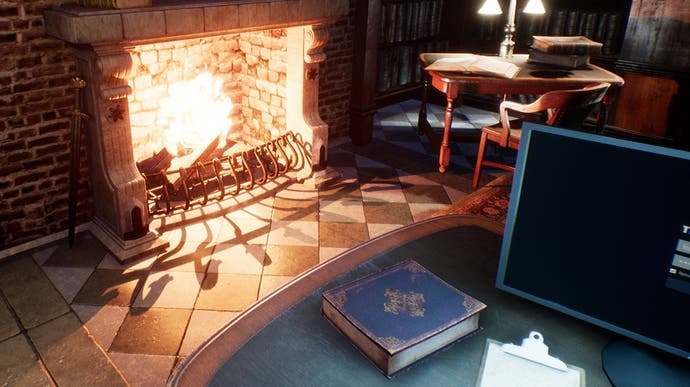Treasure Hunter Simulator and the surprising allure of metal detecting
Beep beep beep.
New year, new you, so why not try treasure hunting? You and the map, out in the wilds, hot on the heels of a buried artefact no one has seen for thousands of years. You'd be like Indiana Jones, Lara Croft, Nathan Drake! Think of the fame and fortune, and the stories!
Oh hang on, sorry, might have misled you - I meant metal detecting.
But it's the same thing, isn't it? There's that guy who got millions of pounds for finding viking relics in the ground, and what about those two blokes who found 70,000 Celtic coins worth around £10m? That's real treasure! And people really call it treasure hunting. It's got such a following there's even now a game, a simulator naturally - because if there's a Street Cleaning Simulator then why not? Literally, it's Treasure Hunter Simulator, and I thought I'd take a quick look.
It's fanciful. Your office is the kind of dark wood, book-lined, antique-globe-sporting room you might find in Croft Manor, and you get emails on your computer from grand organisations like Global Antiques, all while you chase some secret inheritance by flying said globe, finding things. You're searching for Legendary pieces, there's one in each of the game's numerous locations, and by finding them your prestige among the world of treasure hunters will rise. Sound exciting doesn't it? It's not.
Finish the tutorial and your first trip will be to a Bavarian Lake - the Alat Lake - where Hitler's treasure is rumoured to be buried, which sounds morbidly cool. But your mission isn't to uncover this - you actually cannot discover the Legendary item until your third trip there, no matter how hard you look - but to dig up five bits of trash, things like bottle tops and climber's carabinas and nails. Ostensibly it's to build trust but it's a fetch quest plain to see, a boring one. And it doesn't make sense. Surely it's better to leave these things buried than to dig all over a nature reserve, or historical site, looking for them?
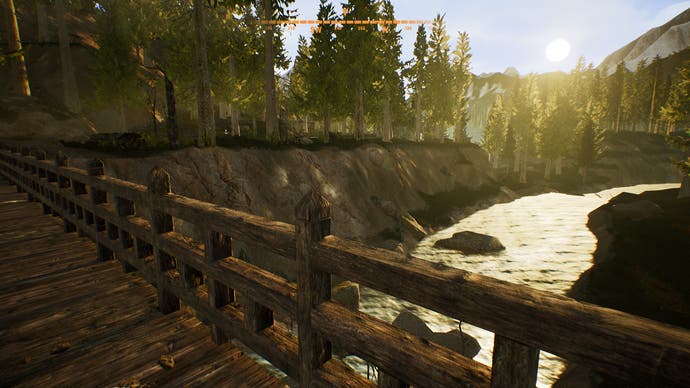
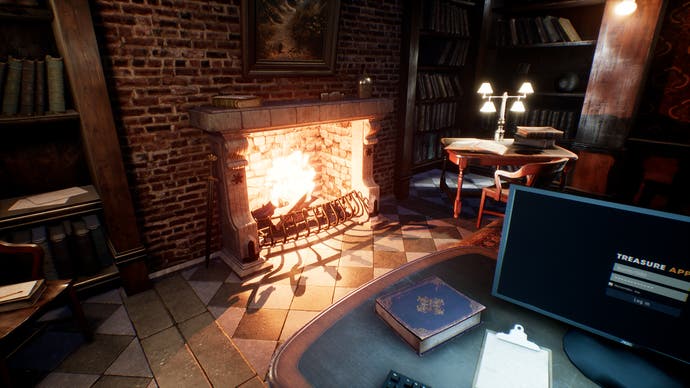
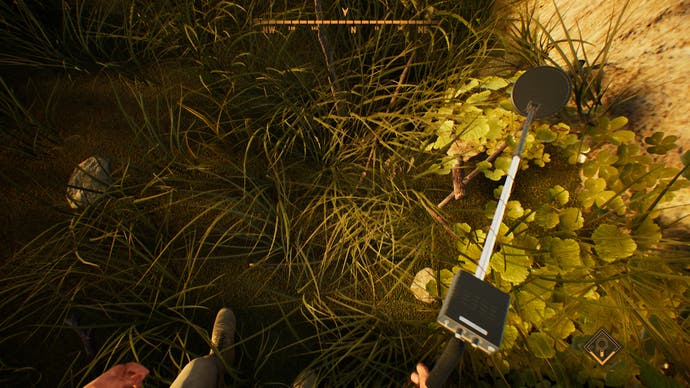
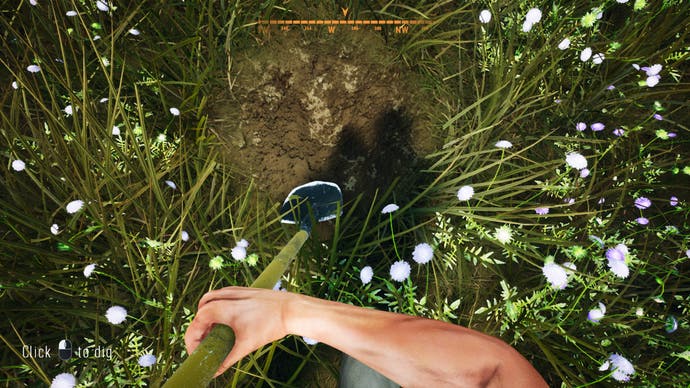
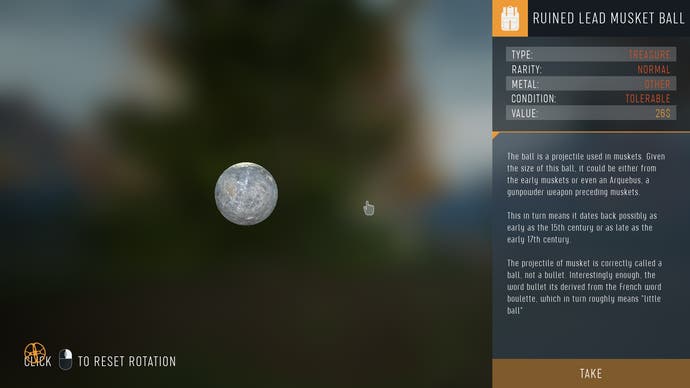
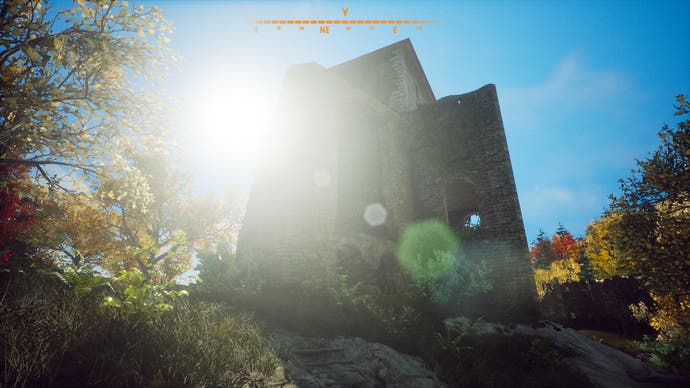
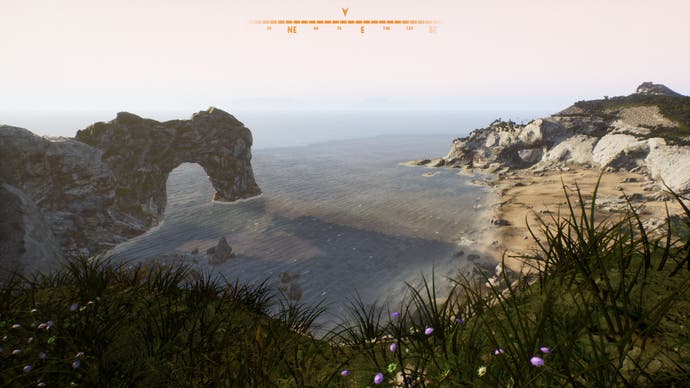
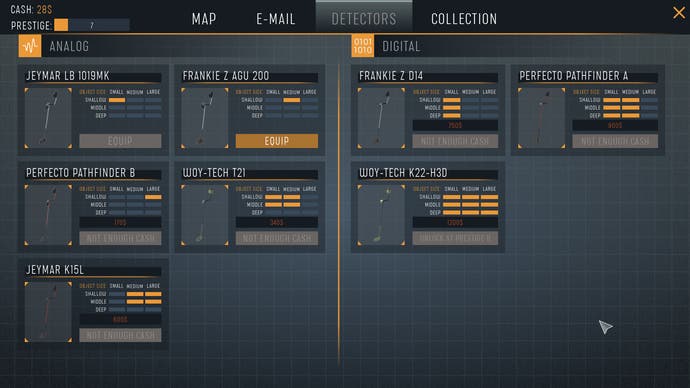
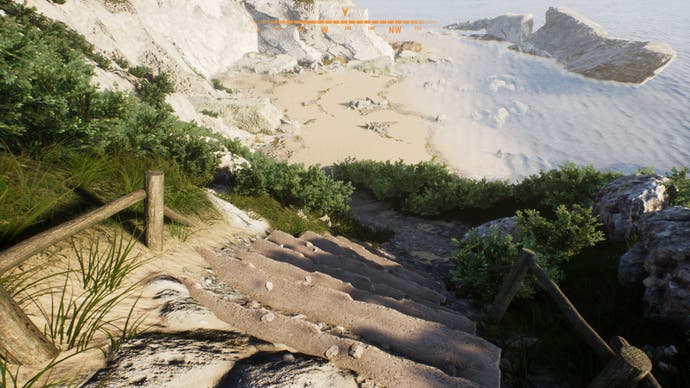
It's not as if the process is fun. You hear a beep when you run around which means treasure is nearby, and you click your mouse to go into scanning mode. From there on, you are fixed looking at the ground, using the WASD keys and QE keys and mouse to move to the area where the beeps are quickest (there's a visual gauge which fills up too). When you hit the jackpot, relatively speaking, you click three times and your hole is dug and your object found.
Once acquired, you identify the item on an inventory screen by spraying some kind of magical canister of gas on it. You get a short history of the piece, which is nice, and an appraisal of the quality and rarity of it - and a valuation. By selling these lesser pieces you raise more money to travel and buy better detectors, which can scan deeper and for larger objects. That's the gameplay loop. It's crude, it's clunky, it's dull.
You spend more time looking at the floor than appreciating your surroundings, which are, to be fair, pretty. The places I've seen are a diverse bunch: the Bavarian Lake; a Slovakian Valley with a castle ruin; the Gettysburg Civil War battle site in the US; and a beautiful Scottish beach - and I believe they're all modelled on the real thing. They have their own peaceful music and are abuzz with wildlife you can hear if not see. Clearly some work has gone in. But leaning on lazy fetch quests undermines it all, and it doesn't take long before I'm swearing every time I - ironically - hear a beep, because it's probably trash but I can't leave it alone.
But hang on, isn't this like being a detectorist in real life? That's what they're called, by the way, detectorists. I learnt it from Mackenzie Crook's award-winning BBC comedy Detectorists, not that I've watched it - and I must - but a clip of the very first episode is, funnily enough, about them always digging ring pulls in place of real treasure. And there's another clip lampooning how Crook's character always looks at the floor and misses the world around him. It seems like the perfect hobby to send up.
Last summer there was this guy on Brighton beach, where I live (not actually on the beach), scanning away, decked out like some kind of expensive vacuum cleaner with tools attached, while everyone else wore swimsuits. He didn't care. He was there for hours scanning a bit too close to people for a bit too long. It was weird - although I later found out he was looking for someone's lost wedding ring, which I thought was very nice of him, assuming he intended to give it back!
But there are plenty of people doing it. I discover there's The Metal Detectives Group UK on Facebook with more than 6000 members. They even have their own annual festival - it's on in September this year if you fancy joining me? What? And judging by the videos of previous years, it's a well attended affair, and sponsored - although why the videos are set to dubstep I'm not sure. Mudstep, more like, am I right? Ha! No, no one?
But these guys, they turn up some amazing stuff. They gather in big groups and methodically march through ploughed fields - with permission of course (apparently there's a real problem with people illegally digging in places they shouldn't, under the cover of darkness) - uncovering gold rings, really old axe heads, coins, loads of things. It's strange seeing them all walking next to each other enclosed in their own headphone-sealed worlds, but I'm sure they make merry later on.
Then there's this lovely article I found on The Guardian from a few years back about being a detectorist, and in it the writer, Mark Wallace, straight out confirmed, "Yes, we dig up more ring pulls than ancient coins ... For every interesting artefact you might find, there are a score of beeps that turn out to represent modern litter or a nugget of anonymous metal decayed beyond all recognition." So in this way I suppose Treasure Hunter Simulator is true to real life.
But Wallace also talked about something the game does not evoke. "Inevitably, we fall victim to being misunderstood," he said. "Headlines reporting 'treasure hunters' finding this or that miss the mark - most detectorists see themselves as amateur archaeologists adding to the knowledge of the nation, not Del Boys on a get-rich-quick scheme ... For most of us, the true value of the things we find is human, not monetary."
His treasures are "the spur of a late medieval horseman, the small change of a Georgian farm labourer, the coin weights of a Stuart market trader". They're not the treasures of monarchs or empires, but the fragments of stories, of life. There's a website people can log their finds and these "glorious mundanities", as Wallace called them, apparently make up the vast bulk. Bury those in Treasure Hunter Simulator and it would be an altogether different game, a genuinely fascinating one.
Still, Treasure Hunter Simulator has helped open my eyes. I doubt I'll go back but I will look at people differently with their magical crooked crutches as they scan the ground. Treasure hunters. And who knows? Out there in the elements, the tranquility of nature seeping through cushioned headphones, the driving optimism of uncovering a lost piece of history: maybe one day I'll join them.
